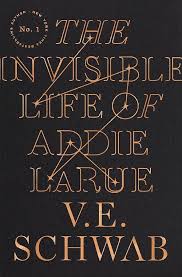Chapter III
byChapter III begins with Henry, full of curiosity and intrigue, observing Addie as she demonstrates an unexpected expertise at the pinball machine during their evening out in the vibrant, bustling streets of New York City. Despite her initial admission of never having played the game before, Addie defies expectations by racking up an impressive high score, causing both herself and Henry to be pleasantly shocked. However, in a strange twist, a glitch in the machine results in her name being cut off, displaying only the incomplete letters “ADI,” a visual representation of her identity that, despite the incomplete nature, feels oddly significant. This rare moment, where Addie leaves a mark, not through her usual invisibility but through the briefest of records, is one that stands as a small defiance of her otherwise forgotten existence, a brief rebellion against the curse that often erases her from the memories of those she encounters.
As the night continues, Henry and Addie find themselves swept into the energy and unpredictability of New York’s nightlife. With a shared sense of spontaneity, they navigate the city’s excitement, finding themselves immersed in experiences that, while exhilarating, also reveal deeper truths about their personal lives. Addie, ever resourceful, cleverly acquires the money they need to keep their evening going, a decision that subtly showcases the edges of her moral flexibility. This moment highlights her ability to blend in and make the best of circumstances, living on the fringes of societal expectations. Their night eventually leads them to the Nitehawk Cinema, a place filled with personal significance for Addie, who finds solace in the timelessness of this New York spot—a sanctuary that connects her to fragments of the past amidst the city’s constant reinvention. There, they settle into the experience of watching Hitchcock’s “North by Northwest,” a film that Henry confesses he’s never seen before, a detail that feels like a small yet meaningful reflection of his own uncharted existence. But the evening is not as simple as it seems; an underlying tension builds within Henry, his unease growing as the film plays on, until he can no longer stay and abruptly exits the theater, his discomfort clouding the atmosphere.
Once outside, with the cool air of the night enveloping them, Henry opens up to Addie in a raw moment of vulnerability, sharing the depth of his fear of time passing him by. He admits that he feels as though he’s not truly living, that the clock is ticking away on dreams and ambitions that seem to fade before he can achieve them. Addie, whose existence has spanned centuries, listens intently, her own experience with the passage of time forming an understanding between them. Her immortality, while seemingly a gift, has brought her its own brand of loneliness and disconnect, as she watches lives unfold and wither around her, yet never able to be a permanent part of any of them. Henry’s confession resonates deeply with her, as she reflects on her own internal struggle between the desire to escape the relentless march of time and the knowledge that she is forever trapped in it, unable to form lasting bonds. This moment of honesty between them offers a glimpse into the complexities of their emotional worlds—both tied to time, yet in different, often painful ways. The chapter unfolds a rich tapestry of their personal battles with time, memory, and meaning, highlighting the universal yearning to find lasting significance in a world that constantly changes. Through these poignant exchanges, they continue to draw closer, each seeking something that transcends the fleeting nature of their desires, only to discover that the more they long for permanence, the more they are reminded of their own transience.


